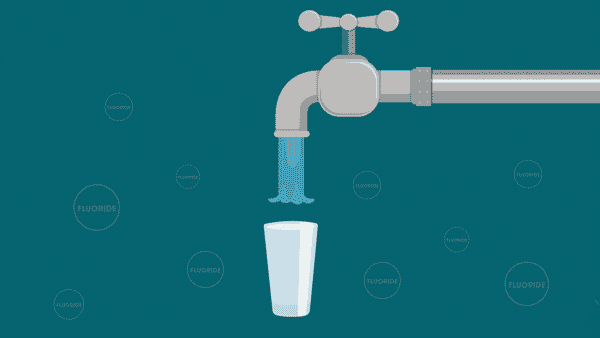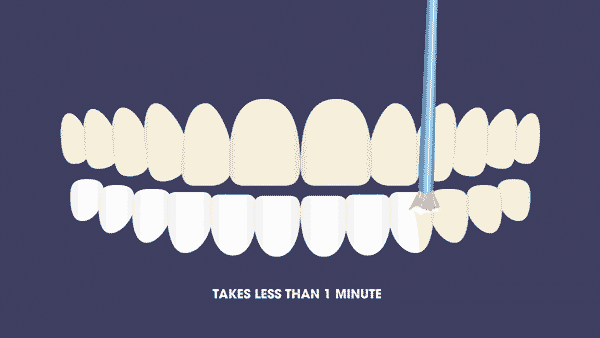
Yes, fluoride is safe when used at recommended levels in water, toothpaste, and dental treatments. Scientific research shows it effectively prevents cavities without toxic effects when used as directed.
Fluoride is a term often mentioned by dentists, however many patients may not understand what it is and it’s benefits to our oral health.
Fluoride is a naturally occurring mineral present in the ground. Depending on your geographic location, some places have no fluoride while others have very high levels. The presence of this mineral in the ground means it may also be present in drinking water and the fruits and vegetables grown in that region.
Fluoride is a powerful remineralizing agent. To understand this, we need to first explain the dangers of demineralization, which is the process teeth undergo when attacked by cavity-causing bacteria or strong acids.
Teeth are hard, mineralized structures surrounding a chamber that contains nerves and blood vessels. Enamel covers the surface of our teeth and is the hardest substance in the human body. One of the few things that can destroy enamel is strong acid. Acids, whether produced by bacteria or applied directly to the teeth in our foods and drinks, breaks down enamel through demineralization.
Fluoride can reverse that process through remineralization. It adds minerals back into enamel, making our teeth stronger and more resistant to future acid attacks.
In addition to the fluoride you can receive through drinking water and your over-the-counter toothpaste, dentists offer professional strength fluoride applications for their patients. Professional fluoride treatments offer a high concentration of this beneficial mineral in a single dose that can be applied every six months (or more frequently) for patients at risk for cavities. Factors like past dental treatment, consumption of sugary or acidic foods or beverages, dry mouth, or poor oral care at home, all increase cavity risk.
People of all ages can benefit from fluoride application. Dentists typically apply it more commonly in young children and our elderly patients simply because those are the ages that naturally carry the highest risk for tooth decay.
Fluoride for Children
Children have a high risk for developing cavities because they do not yet have the manual skills and technique necessary to effectively remove dental plaque from every tooth. For this reason, dentists typically recommend professional fluoride applications for patients as young as two years old.
Fluoride for Elderly Patients
Professional fluoride treatments are especially advantageous in our elderly patients with decreased manual dexterity and dry mouth syndrome. The lack of saliva leads to a much higher risk for cavities, and an inability to manipulate a toothbrush well increases the risk even more.
Fluoride for All Ages
Healthy adult patients may also be recommended for professional fluoride treatments. The most common reasons a “typical” adult would need additional fluoride are high cavity risk, acid erosion, and sensitive teeth. Fluoride reduces sensitivity on teeth by hardening enamel and dentin to block out cold sensations. This helps your natural teeth stay healthy for longer.
Fluoride benefits the teeth via two different methods of incorporation, either systemic or topical. When we ingest fluoride via food, water, or oral supplements, it becomes a part of the tooth development process. Teeth exposed to fluoride during their formation are stronger and more resistant to decay and acid erosion. This is the result of systemic absorption of fluoride.

We also benefit from topical fluoride, applied to the teeth via toothpaste, gel, mouthwash, or professional applications by the dentist. Topical fluoride is most valuable for fully formed teeth that need additional strength to fight cavities, acid erosion, or sensitivity.
Fluoride’s incorporation into the mineral structure of our teeth, whether it comes through systemic or topical means, is vital to the health and strength of the hard structures of the teeth (enamel and dentin).
Using a fluoride toothpaste and drinking fluoridated water is important for maintaining healthy teeth. Patients who need an extra boost of fluoride’s benefits may be recommended a varnish treatment by their dentist.
The high concentration of fluoride packed into a varnish gives you both immediate and long-lasting results. This immediate impact is especially important for those who suffer from sensitive teeth. After the varnish is applied to the teeth, it continues exposing the surface of the teeth to the fluoride for several hours, giving each patient the best possible absorption of the mineral into their teeth.

In most cases, dental insurance benefits will cover professional fluoride treatments at 100% for children up to age eighteen. You can check your specific plan to determine what benefits you and your family have.
For those paying out of pocket, the fee for fluoride treatments usually range from $20-50 per treatment. When you consider that this cost is a fraction of what you could pay for a dental filling to repair a cavity, it’s the most cost-effective and conservative way to maintain your natural tooth.
Some patients have expressed concerns regarding fluoride toxicity. These concerns are valid because fluoride can be toxic when ingested at extremely high levels. However, there is zero risk for toxicity from fluoride at the levels available in your community water supply, over-the-counter products, and dental treatments.
The amount of fluoride needed to maintain great oral health is far below the amount that could lead to toxic effects in the body. As long as you use the over-the-counter or prescription products as your dentist instructs, you should have no cause for concern. Scientific research has continually proven that fluoride can grant wonderful health benefits to the teeth without causing any effects of toxicity when incorporated correctly and at the right levels.